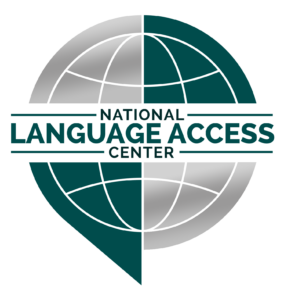Why Language Access Matters: Breaking Down Barriers for LEP Communities
In an increasingly diverse world, where languages intertwine and cultures converge, the ability to communicate effectively becomes paramount. Yet, for many individuals with Limited English Proficiency (LEP), language barriers can pose significant challenges in accessing essential services, navigating critical systems, and fully participating in society. This is where language access steps in – a bridge connecting those with language needs to the information and services they deserve.
The Importance of Language Access in Public Services
Imagine walking into a government office to apply for benefits, renew a license, or seek crucial information, only to be met with forms and instructions you can’t understand and staff who don’t speak your language. This scenario, unfortunately, is a reality for many LEP individuals, highlighting the urgent need for language access in public services.
Language access ensures that everyone, regardless of their language background, can:
Understand vital information: Accessing clear and accurate information in their native language empowers individuals to make informed decisions about their lives, health, and well-being.
Participate in civic processes: Engaging in elections, community meetings, and other civic activities allows individuals to have a voice and contribute to society.
Access essential services: Obtaining healthcare, education, housing, and other crucial services without language barriers promotes well-being and self-sufficiency.
Language Access in Healthcare: A Matter of Life and Death
In healthcare settings, clear communication is not just important, it can be a matter of life and death. Misunderstandings due to language barriers can lead to misdiagnoses, incorrect treatments, and adverse health outcomes. Language access in healthcare ensures that LEP patients can:
Accurately describe their symptoms: Providing detailed information about their health concerns in their native language enables healthcare providers to make accurate diagnoses.
Understand treatment plans: Comprehending complex medical information and instructions allows patients to actively participate in their care and make informed decisions.
Give informed consent: Understanding the risks and benefits of medical procedures empowers patients to make autonomous choices about their treatment.
Language Access in the Legal System: Ensuring Justice for All
The legal system, with its complex terminology and procedures, can be particularly daunting for LEP individuals. Language barriers can hinder their ability to understand their rights, communicate with legal professionals, and participate meaningfully in legal proceedings. Language access in the legal system ensures that:
Defendants understand the charges against them: Accurate interpretation and translation enable defendants to comprehend legal documents and participate in their defense.
Witnesses can provide accurate testimony: Clear communication ensures that witness accounts are accurately conveyed, contributing to fair and just legal outcomes.
All parties have equal access to legal representation: Language services enable LEP individuals to communicate effectively with attorneys and understand legal advice.
Breaking Down Barriers: Strategies for Effective Language Access
Implementing effective language access requires a multi-faceted approach:
Language Needs Assessment: Identify the languages spoken by LEP communities and assess their specific language needs.
Qualified Interpreters and Translators: Utilize trained and certified professionals to ensure accurate and culturally appropriate communication.
Translated Materials: Provide vital documents, forms, and information in multiple languages.
Staff Training: Educate staff on cultural awareness and effective communication strategies for interacting with LEP individuals.
Technology Integration: Utilize language access technology, such as interpretation platforms and translation software, to enhance service delivery.
Community Partnerships: Collaborate with community organizations to reach LEP individuals and understand their unique needs.
The Benefits of Language Access: A Ripple Effect
Investing in language access yields numerous benefits:
Improved Service Delivery: Clear communication leads to better understanding, increased efficiency, and improved outcomes in various sectors.
Enhanced Community Engagement: LEP individuals feel more welcome and included when language services are available, fostering trust and participation.
Reduced Health Disparities: Language access in healthcare contributes to better health outcomes and reduces disparities among LEP communities.
Increased Access to Justice: Language services in the legal system ensure fairness and protect the rights of LEP individuals.
Stronger Communities: Language access fosters a sense of belonging and empowers individuals to contribute their talents and perspectives, building stronger, more inclusive communities.
Conclusion
Language access is not just a matter of convenience; it’s a fundamental right. It’s about ensuring that everyone, regardless of their language background, has equal access to information, services, and opportunities. By breaking down language barriers, we create a more just, equitable, and inclusive society where everyone can thrive.






